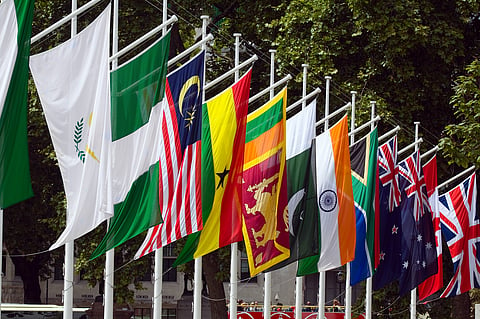

International treaties mostly failed to produce their intended effects except for trade and financial laws and treaties, according to a new analysis.
The treaties dealing with environmental and human rights may have caused more harm than good, the findings of the study published August 1, 2022, in Proceedings of the National Academy of Sciences stated.
The United Nations Convention on the Rights of the Child, for example, is associated with lower Amnesty International human rights ratings, negative improvements in health outcomes and worsened human rights practices, it added.
This United Nations (UN) treaty is likely to have caused a rise in child labour, the analysis pointed out.
On the other hand, trade and finance treaties negotiated through organisations like the Organization for Economic Co-Operation and Development (OECD) or World Trade Organization were successful.
The report’s authors are from York University, University of Toronto, McMaster Health Forum, Johns Hopkins Bloomberg School of Public Health, Africa Centre for Evidence, University of Johannesburg, Norwegian Ministry of Foreign Affairs, Oslo, University of Nottingham and Ningbo, China.
The authors set out to study whether legally binding instruments effectively served their intended purpose. There are over 250,000 international treaties, according to the study.
“Leaders from government, academia, business and civil society have been calling for new treaties, without evaluating the impacts of the existing ones,” the authors wrote in their report.
The authors analysed 224 published papers on the impact of treaties. Additionally, they evaluated accountability by looking at four mechanisms — transparency, oversight, complaint and enforcement.
Transparency mechanisms enable information sharing and oversight allows monitoring purposes. At the same time, complaints aim at adjudicating grievances and enforcement for sanctioning non-compliance among signatories.
Of these, treaties incorporating enforcement had more positive impacts than the rest. According to the researchers, enforcement mechanisms were part of nine of the 20 trade and finance treaties evaluated in the study.
But, two of the five environmental treaties and none of the 28 evaluated treaties dealing with human rights, humanitarian crises, maritime issues and security had enforcement mechanisms in place, they wrote.
Some examples of treaties with negative impacts include — the UN Convention on the Rights of the Child, the International Covenant on Economic, Social and Cultural Rights, the American Convention on Human Rights, and the European Convention on Human Rights.
Studies on the Convention Against Torture (CAT) were contradictory. For example, a study evaluating CAT’s impact one year after signing the treaty showed that signatories were less likely to torture.
Another study, in contrast, found that the treaty raised the probability of practising torture to 15 per cent by signatories.
“These seemingly contradictory results may indicate that authoritarian governments are likely to sign treaties like the CAT for immediate political advantages,” the researchers wrote in their paper.
The absence of robust enforcement mechanisms can be the reason behind such responses, they added.
The best-performing treaties were the General Agreement on Tariffs and Trades, OECD, Association of South East Asian Nations and the Treaty of Asuncion.
Some protocols, such as the Kyoto protocol, which mandated that member nations slash greenhouse gas emissions and Sophia Protocol, which required parties to control nitrogen oxides emission, were not as successful as finance and trade treaties, the report observed.
Treaties negotiated through large multilateral bodies with more than 100 signatories like the UN may be less effective than those with fewer parties, the researchers speculated.
The report also pointed out that studies investigating the impacts of international protocols have to be more elaborate.“The quality and breadth of this evidence must improve,” they wrote.